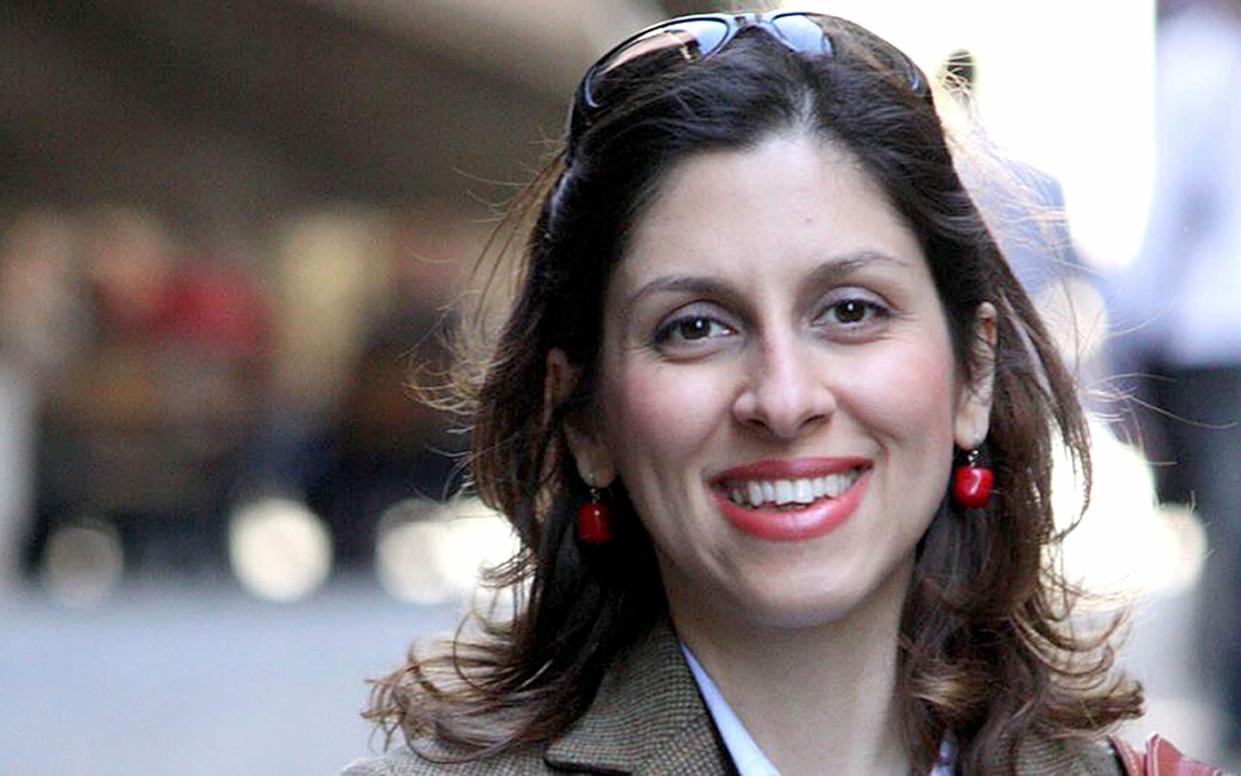Campaign for Nazanin Zaghari-Ratcliffe hinders her chances of early release, Iranian ambassador says

Iran's ambassador to Britain has said the publicity campaign to free Nazanin Zaghari-Ratcliffe has made the London mother's chances of early release from prison less likely.
The intervention came three days after her husband announced the 40-year old mother from Hampstead began a hunger strike over access to specialist medical care and revealed that she had been offered freedom in exchange for agreeing to spy on Britain after she returned to the country.
Mrs Zaghari-Ratcliffe, who has suffered a catalogue of mental and physical health complaints since she was arrested on April 3 2016, and the imprisoned Iranian human rights activists Narges Mohammadi announced a hunger strike on Monday, saying they had been refused access to expert medical consultations.
Jeremy Hunt, the foreign secretary, summoned Hamid Baeidinejad, the Iranian ambassador, to demand that she be granted proper access to medical care following the announcement.
The pair said their request for access to medical care outside prison had been granted and ended their hunger strike on Wednesday evening.
But Mr Baeidinejad hit out at the publicity campaign, accusing Richard Ratcliffe of "causing chaos and complications," telling "lies" about his wife's treatment.

He said Mrs Zaghari-Ratcliffe would qualify for an early release scheme but that she had been "ill-advised" by her husband to "adopt measures that are not helpful."
"We really hope that we can help her from a humanitarian ground and find quick solutions in a way that clemency will be granted," he said.
"Unfortunately in this situation now, when there are always agitations, issues in the media and politicisation of the media, I am concerned that this would not be a situation leading to that conclusion."
Mr Baeidinejad stressed that he was not making an oblique threat but simply stating the facts of Iranian law.
He also said that Mr Ratcliffe had turned down offers to facilitate a visa so he could visit his daughter, Gabriella, who has been living with her grandparents in Tehran since Mrs Zaghari-Ratcliffe was arrested.
Under Iranian law anyone who has served one third of a five-year prison sentence is eligible for clemency provided prison authorities and prosecutors assess that they have shown good behavior in prison, do not pose a danger to society, and is at no risk of re-offending.
Mr Baeidinejad called the spying allegation "a lie." He said Mrs Zaghari-Ratcliffe was receiving all necessary medical attention.
Mr Ratcliffe said: "It is extraordinary that he would in public suggest that the reason for Nazanin's continued imprisonment is the publicity campaign or her behaviour.
"Many others who are quiet and also eligible for early release are still being held. I think it is important in our campaign that we are always transparent and honest and consistent. There are lots of things in Iran that are said obliquely and inconsistent messages that come from different parts of the system. We believe it is important that we are always consistent."
"Everyone should understand that I believe Nazanin is innocent and she has been the victim of a profound injustice. Iran has within its power the ability to end this and always has had."
He called the claim he had been offered a visa a "bare faced lie."
"If they give me a visa tomorrow I will get on the plane," he said.

